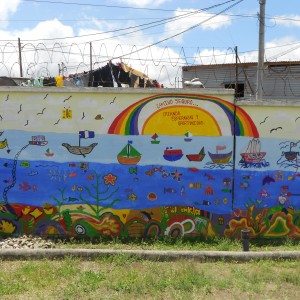Scott Burke writes about Safe Passage turning 15 this year. They’re a non-profit in Guatemala that helps mothers and their children get an education.
Category: Uncategorized
Teen Summer Program in Guatemala
Click for the PDF program document for our Teen Summer Program in Guatemala for 2014.
Why We Need to Overhaul Philanthropy: Interview With Peter Buffett
I just came across an opinion piece from last summer written by Petter Buffett for the New York Times. He describes a term he calls “Philanthropic Colonialism”, where rich donors try to “save” locals even though the donors have zero knowledge of the culture or its problems. An excerpt is below (full article here).
Buffett writes:
” I now hear people ask, “what’s the R.O.I.?” when it comes to alleviating human suffering, as if return on investment were the only measure of success. Microlending and financial literacy (now I’m going to upset people who are wonderful folks and a few dear friends) — what is this really about? People will certainly learn how to integrate into our system of debt and repayment with interest. People will rise above making $2 a day to enter our world of goods and services so they can buy more. But doesn’t all this just feed the beast?…I’m really not calling for an end to capitalism; I’m calling for humanism. “
Always Journeying to Someplace New Gets Old Fast
Nice New York Times interview with author Daniel Klein about the wonders of the prolonged stay abroad, instead of perpetually chasing “new” travel destinations and experiences.
(Klein’s most recent book is “Travels with Epicurus: A Journey to a Greek Island in Search of a Fulfilled Life“.)
An excerpt from the interview:
There’s something about old age that can induce the patience needed to gradually sink beneath the surface of a new environment. Instead of trying to keep track of constantly changing scenes, we can delve into a single scene. Yum.
Photographs from Hydra by Billy Hughes, who journeyed to Hydra, Greece, with Klein while the latter was finishing “Travels With Epicurus”.
Brushing your teeth with a twig in Kenya
Ever wonder how rural Africans brush their teeth? Metropolis TV sent a correspondent to Kenya to find out.
Community Development in Ghana
Here are some photos from our community development in Tamale, Ghana:
Donate Books & Clothes Abroad? Eh.
Thinking about donating books / clothes abroad? While the sentiment might be good, there are far better ways to help others.
One great example is a new non-profit called LivelyHoods in Kenya which helps locals earn money by selling local goods.
The LivelyHoods project, which began in Kawangware, a densely populated urban slum about nine miles (15km) from Nairobi, is designed to create employment opportunities by training young people to sell products tailored to the needs of their communities. Cornerstones of the scheme’s iSmart brand include fuel-efficient cookstoves, of which 3,233 have been sold so far, as well as solar lamps and reusable sanitary products for women. All the products are vetted for their suitability, first by the LivelyHoods sales team and then by potential customers.
Here is founder Maria Springer to explain:
Welcome to India 2012 (Episode 3 of 3)
(from the BBC)
Welcome to India 2012 (Episode 2 of 3)
(from the BBC)
Welcome to India 2012 (Episode 1 of 3)
(from the BBC)


